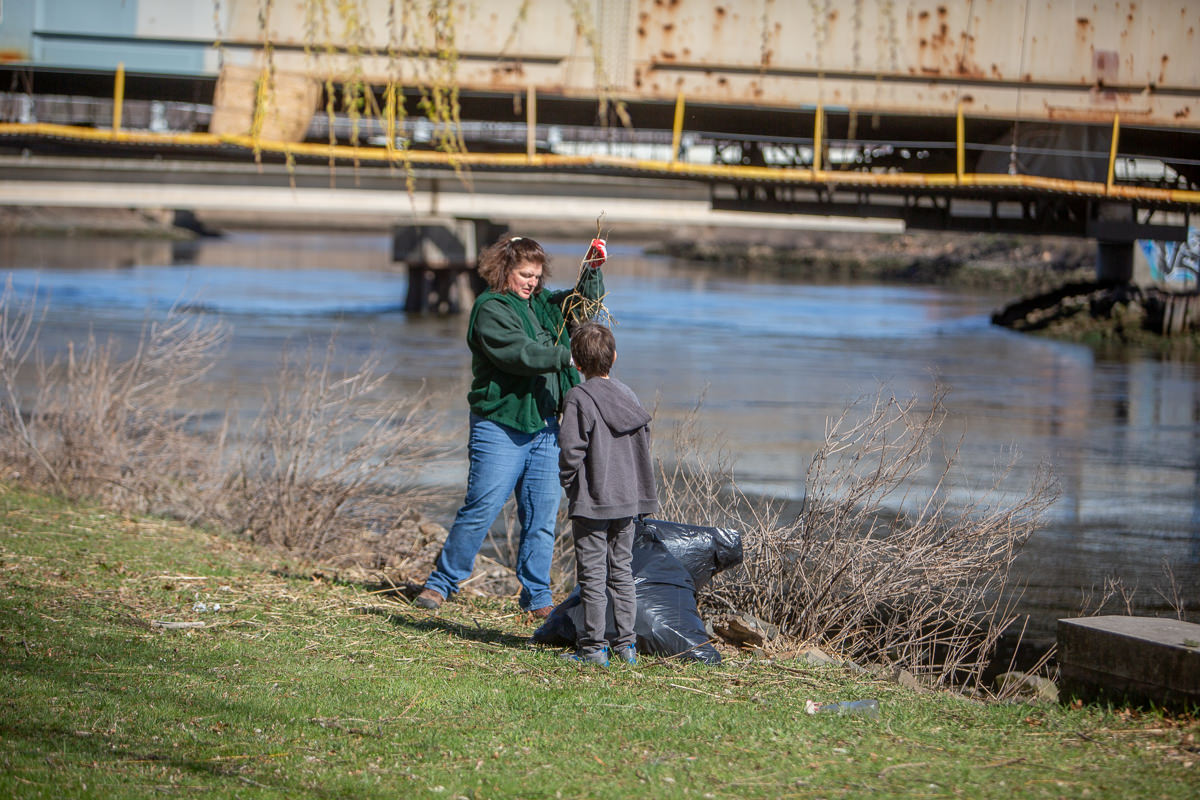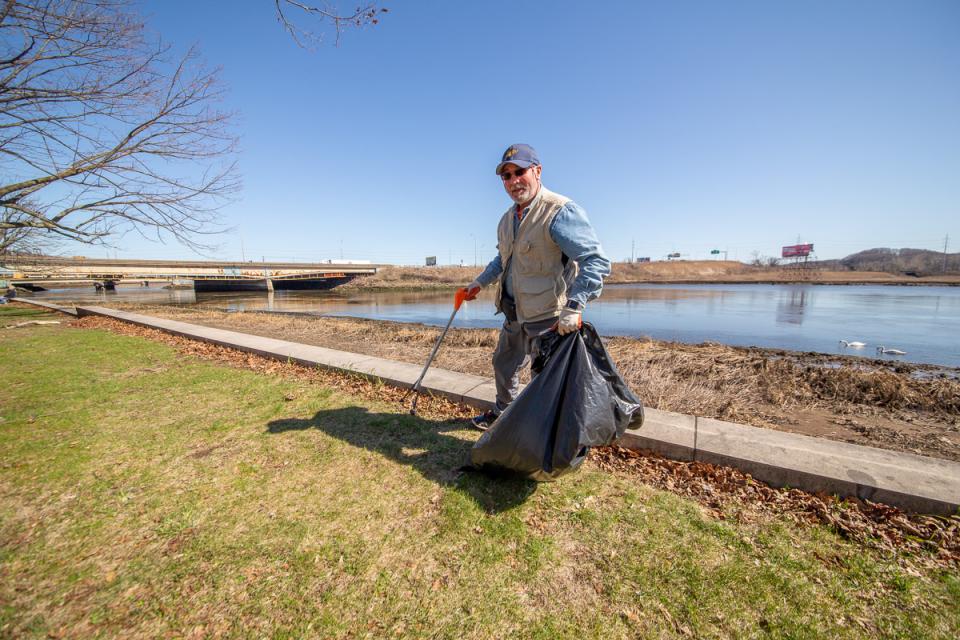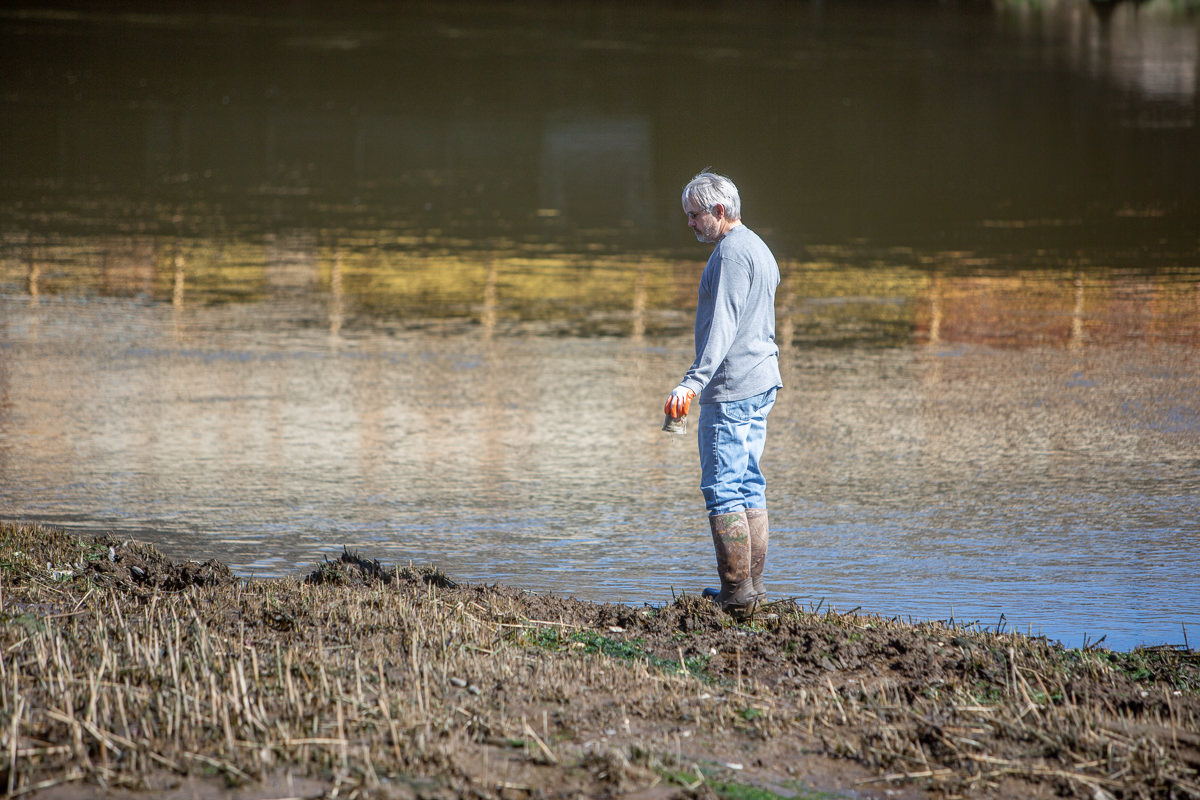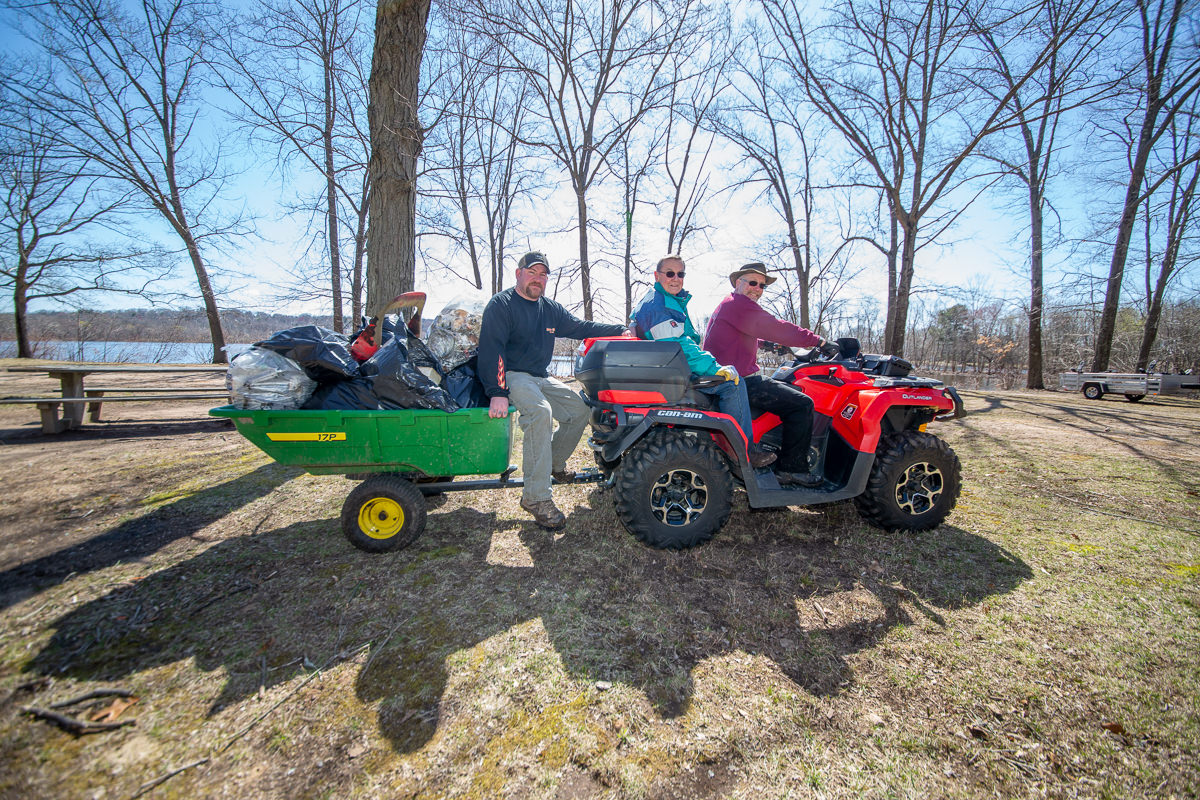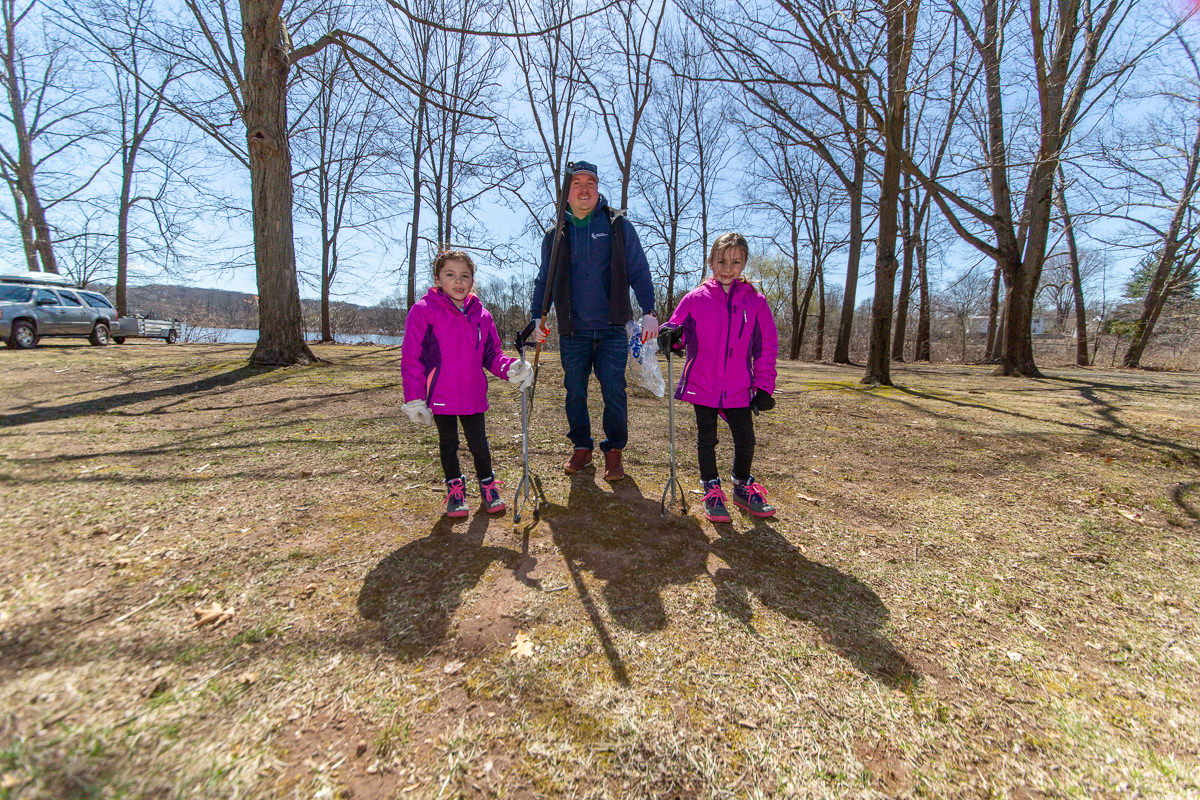Keeping Up With the Garbagians
Source to Sound clean-up clears more than a ton of trash from Q River watershed
For more than four years, Bob Diamond has been grabbing gloves and garbage bags and joining QRWA for its semiannual Source to Sound clean up along the Quinnipiac River. He calls himself “the bobsessive de-litterer.” His task at hand, “keeping up with the garbagians.”
For the Quinnipiac River watershed and other natural resources in highly-developed areas, the so-called “garbagians” come in many forms, from the heedless litterer hocking candy wrappers and soda cans out car window to the illegal dumper depositing old tires, radiators or couches in the woods.
For nearly 40 years, QRWA cleanups have helped remove the flood of rubbish that besets the Quinnipiac River and its tributaries. This year, the event spanned five locations in five towns — Meriden, New Haven, Cheshire, Wallingford and Plainville — where more than 100 volunteers pulled, picked and dragged more than 3000 pounds of garbage from bushes, banks, trails and beaches.
Volunteers included local families from each town, dozens of students from Plainville High School, as well as community businesses and organizations such as the Quinnipiac River Marina, the Meriden Motorcycle Club and Jovek Manufacturing, with the latter two contributing ATVS to transport the garbage from the trails.
“It’s a way for people to get their hands on the problem, which keeps it on their mind,” says David James, QRWA president. But, he explains, the problem itself is much bigger than what can be bagged and hauled out. Quinnipiac’s water quality continues to be an issue. While there have been strides made in reducing point source pollution from active industrial discharge, the watershed still suffers degradation from non-point sources like impervious surfaces (pavement), agricultural runoff, lawns and storm systems.
“Nature longs to heal itself and will in time,” David says. “And with some human TLC that day can be hastened.” To hasten the day, David adds that policies and public education are essential. “People need to realize that it is critical that our environment is healthy. This should be headline news. Unless we start to make some progress in regards to ethics, we’ll still be doing this in 50 years.”
In line with the Federal Clean Water Act of 1972, the long-term goal is to see the Quinnipiac more capable of supporting more recreation and measured consumption, but in the meantime, QRWA and a revolving army of concerned citizens will continue to fight the garbagians. Ongoing efforts include these semi-annual cleanups and other initiatives of the newly-formed Quinnipiac River Cleanup committee led by husband and wife team Shianne and Tim Cutler, both of whom serve on the QRWA board. In addition to coordinating the multi-town reach of the clean up events, the committee is ready in any season to don boots or waders and respond to reports of trash in the river.
“We’ve gone out for everything from a playground slide to bunches of bottles in the water,” Shianne explains. The Cutlers live in Meriden but are committed to responding to issues anywhere on the river. To report a clean up concern, e-mail qrivercleanup@att.net.
